A casual visitor to China today does not get the impression of a police state. Life bustles along as people pursue work, fashion, sports, romance, amusement, and so on, without any sign of being under coercion. But the government spends tens of billions of dollars annually (more than on national defense) on domestic weiwen, or “stability maintenance.” This category includes the regular police, courts, and prisons, but also censors and “opinion guides” for the Internet, plainclothes police, telephone snoops, and thugs for hire, whose work is to keep citizens in line. The targets are people who tend to get out of line—petitioners, aggrieved workers, certain professors and religious believers, and others. The stability maintainers are especially attentive to any sign that an unauthorized group might form. The goal is to stop “trouble” before it starts.
Weiwen does blanket coverage, but the blanket, most of the time, is soft. This is because citizens are well accustomed to monitoring themselves. They are aware of what kinds of public speech and behavior are to be avoided and they know that kicking the police blanket is not only dangerous but nearly always futile. People who do it, they feel, are odd, perhaps even stupid.
Those who do choose to stand out from the crowd, risking the label of “troublemaker,” immediately come into focus for weiwen. Police arrive for “visits.” They warn. They cajole. Failing that, they threaten and harass. Beyond that, they detain and charge with crimes. At each step they check with “superiors.”
It takes unusual character to stand up to this. People who do it are strong, stubborn, and, as their families and friends sometimes see it, high-minded to the point of obtuseness. The passions of some have been kindled by personal loss—an imprisoned brother, a murdered son, a razed home—while others are indignant primarily at the injustices they see around them. Many are idealists, oddly willing to risk personal safety because China falls short of what they want it to be. Some are lured by the image of heroism, even knowing that its price could be martyrdom. For many, there is a mix of these motives. In the Shadow of the Rising Dragon, a translation of essays from a book published last year in Hong Kong called Encounters with the Police, introduces fourteen such people.
A first question is why they are so important. They are a small minority, nonviolent, not wealthy, and not high-ranking. Many are women. Why are they not just marginal irritants—like “lice on a lion,” as the regime says (if indeed it says anything about them at all)? It is quite clear that they are much more than that, and that their audacity poses a genuine threat to the regime. Ironically, the best evidence for this comes from the regime itself—not in how it speaks of them but in how it handles them. It regularly “invites” them to tea and asks that they “coordinate” with police by sharing their plans; it monitors and if necessary confiscates their telephones and computers; it stations police at their doors (where, during “sensitive” times like anniversaries of the Tiananmen massacre of 1989, they remain around the clock).
Among its many anecdotes, In the Shadow of the Rising Dragon tells how, on a cold day in 2010, Ding Zilin, a seventy-three-year-old retired professor of philosophy, leaves her house with her husband, Jiang Peikun, to travel from Wuxi to Beijing. Jiang is ill. Two plainclothes policemen intercept the couple, tell them to get out of their car and into a police car, escort them to the Wuxi rail station, and then board the train to “share a compartment” with them. In Beijing, another car from State Security awaits them. Why all the attention, time, and expense? What does an elderly professor have that calls for such solicitude from a government that owns the world’s largest reserves of foreign currency and commands the world’s largest standing army?
Ding Zilin has—and it is all she has—the power to tell unapproved truths. Her son Jiang Jielian was killed when the army invaded Tiananmen in June 1989, and she later organized and led the Tiananmen Mothers, a support group for families of other victims of that massacre. She also became a mentor to Liu Xiaobo, who, just four days before her train ride to Beijing with the police, had been awarded the Nobel Peace Prize in Oslo. The prize was given in absentia because Liu remained in a Chinese prison, convicted of “incitement of subversion of state power.” These facts, at this “sensitive time,” were more than enough to assign police escorts to her. Their appearance was a symptom of a real fear that she plants in the minds of the men who rule China. What if her ideas get out and begin to spread?
Václav Havel, observing the response of the Soviet government to Alexander Solzhenitsyn in the 1970s, described
a desperate attempt to plug up the wellspring of truth, a truth which might cause incalculable transformations in social consciousness, which in turn might one day produce political debacles unpredictable in their consequences.
The mentalities of the Kremlin in the 1970s and of Zhongnanhai—the headquarters of the Chinese Communist Party and state—today differ in important respects, but this fear of truth-from-below, so well described by Havel, is something that the two groups share. It arises from awareness that public acquiescence to their rule is often performance more than conviction.
Official language, obligatorily true at one level, at another level is hollow. The rulers themselves need to deal with this language bifurcation. On the topic of the 1989 massacre, for example, they can announce that “the Chinese people have made their correct historical judgment” on the “counterrevolutionary riots.” But do they themselves believe this? If they did, would they not open Tiananmen Square every year on June 4 to allow the masses to come in and denounce the rioters? What they actually do, each year, is the opposite: they send plainclothes police to prevent any sign of commemoration of any kind. They plug that “wellspring of truth,” as Havel calls it. Ding Zilin and everyone else in In the Shadow of the Rising Dragon are plug-pullers.
The “superiors” who order the repression do not appear in the book. They operate behind the scenes. The people we see face-to-face with the plug-pullers are several kinds of underlings. They are normally young and more often male than female. They receive assignments and are paid to carry them out. They sometimes show respect for the people they are watching and speak frankly of “just doing my job.” They make it clear that they are not very well paid, and sometimes talk about their work schedules. Overtime work can be welcome if it entails following someone to a restaurant where state-issued coupons can be used to order fancy meals.
These books show us that they are sometimes not even official employees of the state, but ordinary people, including migrant workers, who are willing to work as temporary employees. There are companies that sell control services by contract. But no street-level police worker of any variety answers questions about policy; they refer these to superiors. Sometimes they don’t even use the word “superiors” but just point a finger upward to explain why they are doing what they are doing. One level above them are police who work in local stations or detention centers. These personnel are generally older, more experienced, and better trained in methods of interrogation. We see some of them in In the Shadow of the Rising Dragon. They have a certain latitude to make tactical decisions, but on weighty questions (like how to handle the travel of a truth-telling seventy-three-year-old professor) they, too, turn to their superiors.
What fills the pages of the book, therefore, is mostly the verbal stand-offs between two very different kinds of people: on one side, obdurate truth-tellers insisting on principle; on the other, people trying to do their jobs in order to earn salaries. What the two sides have in common is that each has an incentive to keep talking to the other. For the truth-tellers, the talk is a passion; for the police, it is a tool in control work. The symbiosis generates a language game that seems unusual by standards of other cases in the world to which it might be compared. Police in Soviet-dominated Eastern Europe were not nearly so talkative. They were brusque; business was business. In South Africa under apartheid, blacks dissimulated in their use of language in order to get by, and in that sense also played a language game, but there was nothing like the extensive give-and-take of the game that has evolved in recent decades in China. The matching of wits, the thrusting and parrying, and the posing (even while pretending not to pose, and even though both sides see through the pretending) all seem quite unusual.
For example, a young woman named Huang Yaling, two days after Liu Xiaobo’s Nobel Peace Prize was announced in Oslo in October 2010, went to the Norway Pavilion at the Shanghai World Expo to present a bouquet of flowers and a note that said “I love Norway.” The police noticed and invited her to tea. Here are excerpts of her interview with a male policeman. (This account, and another I draw on, appear only in the Chinese-language version of the anthology.)
“Did you go to the World Expo?”
“Yes.”
“To which pavilions?”
“Norway and Denmark. The others had too many people and I didn’t want to wait in line….”
“Was there anything you found especially memorable?”
“Oh, I met the director of the Norway Pavilion! He was as handsome as a movie star!”
“You’re married and you notice the good looks of some foreigner?”
“Why can’t I admire somebody’s good looks? My husband can enjoy the beauty of a foreign woman, and I bet you do, too!”
“I’m not married, so of course I can look at pretty girls. What about that director? You know what we’re asking about, so just cooperate!”
“I gave the director a bouquet.”
“And what did he do?”
“Accepted it.”
“What was the director’s name?”
“Aiya, what a pity! I forgot to ask the name. Do you know his name?”
“How would I know his name?!… What did you say when you presented the bouquet?”
“I love Norway and I’m offering these flowers to Norway.”
“Why give flowers to Norway?”
“I like Norway…. What else can I do?”
“Why do you like Norway?”
A few minutes later:
“All right, enough chit-chat, I’ll cooperate. You want to know why I brought a bouquet to the Norway Pavilion? I’ll tell you, but first you have to show me yourIDs….”
“Why do you care about our IDs? You’re still not cooperating. Do we need to get a subpoena?”

Ding Zilin, whose son was killed in Tiananmen Square in 1989 and who organized the Tiananmen Mothers, a support group for families of others killed there, in front of a shrine to her son, June 2008
“Who asked you to be so rude? Come on, let’s shake hands and then I’ll give you all the details.”
“We came to do our jobs, not to shake hands. Our job is to understand the situation. Why did you bring flowers to the Norway Pavilion?”
“OK, it was because of the Nobel Peace Prize.”
“What about it?”
“I was happy about it. Aren’t you? Aren’t you happy that a Chinese won the Nobel Peace Prize?”
“It’s not our job to talk about being happy.”
The words “our job” are significant. For police at this level, the job is to extract information. Their methods are remarkably similar nationwide—a fact that reflects their training. An important priority is to uncover a person’s contacts. Twenty years ago, this meant examining address books; today it means confiscating computers and cell phones. The police note e-mail addresses and read e-mail. They sometimes imitate a person’s style in order to send out bogus e-mail, hoping to lure unwitting responses. In interrogation, many questions are about a person’s associates: Who told you to do this? Who was with you? and so on. For their part, detainees often announce in advance that “I will talk to you, but in principle will say nothing one way or another about anyone else.”
Some methods for putting psychological pressure on detainees are standard, not only in China but around the world. People undergoing interrogation can be surrounded by questioners, placed under bright lamps, made to sit uncomfortably, deprived of sleep. They can be separated from colleagues and manipulated. (So-and-so has already told us everything; our reason for asking you what happened is not to learn what happened, because we know it, but to measure your sincerity, which will affect your punishment.) An abrupt change of topic can be an attempt to catch a detainee off guard. A sentence that begins, “In Marx’s socialist theory, regarding democracy…” can be cut off with, “When did you arrive in Nanjing?”
Threats are useful, and they come in many kinds: We can lock you up for years, you know. Would you like three, or four? How are your children? Going to school? Would you like them to stay at the same school? You are a lawyer; would you like to keep your license? Travel permissions—passports, visas, exit permits—are especially useful as levers. For “troublemakers,” China’s border has become a political toll booth. Whichever direction you want to cross it in, you need to pay a price. Some police threats are aimed at keeping the threats themselves secret. Detainees are asked to sign statements in which they agree not to “sully the image of the motherland” by talking about what has happened to them. (The contributors to the two books under review have obviously chosen to defy this instruction.)
Police the world over are familiar with the “good cop, bad cop” technique, and Chinese interrogators use it often. One moment an interrogator is saying, “We’ve looked at the material in your computer and all your online postings, and we sympathize with you”; the next, someone “poked my head, kicked the tiger seat [made of welded metal bands] and yanked my shoulders back and forth, ensuring that in my extreme exhaustion I couldn’t fall asleep.”
If extraction of information is a goal of police work everywhere, in China there is a twin goal—not found in most other repressive societies, past or present—and that is to change a detainee’s political attitude. This goal does much to explain why Chinese police want detainees to talk. Talking draws people out, engages them, and might be the road to changing their views—or at least their calculation of their own best interests. Hence much time is spent on questions like: Why do you bother writing articles like this? Isn’t China much better off than it was twenty years ago? Can’t you see that your friends have BMWs and you still have only a Toyota? Why go to prison? Don’t you want your children to have a father at home?
Teng Biao, a well-known human rights lawyer, had the question put to him bluntly. There were “two roads” for him to choose between: “detention, arrest, trial and prison” or “lenience for a good attitude, and…release.” Which would it be? “Just say a few words admitting error, even if you don’t believe it,” his interrogator advised, then added, “just as a favor to me.” Those last words were not merely an attempt to manipulate Teng Biao. They were in part sincere. If the official record showed that Teng Biao had achieved no “ideological transformation,” the interrogator himself could be faulted. Here we see one way in which detainees can gain leverage in arguments with police and sometimes even put them on the defensive. There are others.
One common tactic is to argue from law. China’s laws give rights to citizens, detained or not, and the police, although they violate these rights flagrantly and often, are obliged to pretend that they do not. At the rhetorical level China’s constitution is sacrosanct, and the distance between that level and what actually happens in interrogations gives detainees plenty of grounds for attack. During the verbal games that ensue, the police hold the trump card of knowing that overwhelming state power is always on their side.
Except for that, though, detainees almost always have the stronger position in argument because they know the law much better than the less-well-educated police do. Xiao Qiao, a regime critic who traveled to Sweden and then was barred from reentering China through Hong Kong in 2009, asks the Chinese border police, “Which part of the Regulations stipulates why a Chinese citizen can be prevented from entering her own country?” Receiving no answer, she presses further, demanding the return of books the police have just confiscated. What rule allows them to confiscate those books? Apparently beaten, but still bound to obey orders from superiors, the unfortunate border guard can only retreat to informal language: “Let it go, those few books aren’t worth anything, just buy some more when you get back to Hong Kong.”
The vulnerability of low-level police to legal argument from the people they detain explains their strong reluctance, shown repeatedly in In the Shadow of the Rising Dragon, to give their names or show their IDs. They feel trapped. On the one hand, they have been trained to detain people and extract information. On the other, they are not supposed to violate the law. In essence they have been given contradictory guidelines, but if they err, it is they, not the authors of the guidelines, who will take the blame. Some clever detainees come along, citing all the rules in the book, and ask for their names and IDs. What can they do?
Yet an appeal to the laws can go only so far if the police are the only ones hearing it. Hence a related tactic has emerged—that of extending the audience to bystanders. Xiao Qiao, arguing with border police over her right to reenter China, raises her voice sufficiently that others can overhear, and the police, perceiving her tactic, urge her to lower it. In courtrooms, an accused can sometimes turn a gallery into a sort of informal jury, drawing titters from it, even applause, by speaking common sense.
Xu Youyu, one of the editors of In the Shadow of the Rising Dragon, tells how police, after knocking on his door one night, tried to use the bystander effect themselves. As Xu stood in his doorway, talking to them but not inviting them in, they said, “Let’s not argue outside. It won’t look good to the neighbors.” They knew that ordinary Chinese fear the police and (whatever their private sympathies) tend to shun neighbors like Xu who receive police visits. The message to Xu, as he stood in his doorway, was clear: Do you want to be tainted by our presence here or will you let us in? Xu was already tainted enough that adding more would hardly make a difference, and in any case he knew that his neighbors largely respected him, so he turned the tables. He raised his voice and shouted that he hoped everyone in the building would know he was arguing with the police.
The Internet has greatly enhanced the bystander effect. Anecdotes about police misbehavior travel quickly online in China and become the focus of group discussion. After any report of confrontation between police and citizens, popular sympathy heads almost reflexively to the side of citizens. Smart phones, which have made photography much easier than before, have become important tools for activists and a new headache for police. Anything the police do might be on the Internet within minutes and visible to uncountable numbers of virtual bystanders—at least until Internet censors have a chance to take the photos down.
Publishing accounts of repression abroad can be viewed as looking for bystander sympathy overseas. (The books under review are an example.) Police in China seek to deter such activity with the threat that “patriots” do not cooperate with “hostile foreign forces.” Westerners sometimes shy away from contact with Chinese protesters out of fear that they might get them into trouble, but this is almost always a mistake. What usually happens, and these books show examples, is that detainees and prisoners in China are treated better, not worse, when the police know that the outside world is watching. The best course for outsiders is to let people inside China make the judgments about risks. If they reach out to you, or do things that invite international attention, to shy away is to second-guess them about what they know best.
Chinese protesters rely on the bystander effect because of an assumption that human beings, on average, share a basic civility that will naturally bring the sympathy of bystanders to the side of the aggrieved. This assumption of a common ethical bedrock is visible even in their face-to-face encounters with police. The verbal jousting of both sides observes some basic civilities, even if only for show. For example, a few days after a police raid, Ding Zilin, the seventy-three-year-old professor, was so shaken that she fainted and was sent to the hospital. The police then returned to ask her to sign a statement that said, “The patient fainted due to a dispute among family members.”
The police—not just the individual police but the system they work for—do not want it on record that they were the cause. The statement they offer her is a lie, to be sure, but the lie itself is evidence of a need to honor a common value: it is uncivil to cause old ladies to faint. (One could imagine them saying, “We are right, you are wrong, and fainting serves you right,” but they do not say this.) Ding Zilin objects to the statement they proffer. It is not true. But the police persist and ask her to consider their personal situations. A more factual record of the fainting episode would “cause problems” for them. Ding sees their point, and in the end assents, albeit grudgingly. She, too, takes bedrock civility into consideration.
In the Shadow of the Rising Dragon shows many examples of such accommodation. The two sides are always adversarial, and sometimes hostile, yet share a tacit understanding that there are certain values of decency that a person does not violate. Both sides use the assumption to gain advantages. Even a tough-minded lawyer like Teng Biao shows respect (or pretended respect) for the anxiety of police interrogators not to lose face by conceding that “some of the sentences and phrases in my essays were somewhat inappropriate” before he gets to his “but” clause and says what he really wants to say.
Still, it is worth keeping in mind the overwhelming unfairness of the administration of criminal justice. Jerome Cohen, a leading authority on the Chinese legal system, recently wrote that, quite aside from the formal criminal process,
The police also have a panoply of legally-authorized instruments at their command. They still detain millions of people every year—some repeatedly—for up to 15 days for each alleged violation of a very broad range of minor offenses against public order. They confine minor drug and prostitution recidivists for up to two years of rehabilitation. They continue to have the power to impose upon the more recalcitrant of such offenders, as well as a variety of dissidents, petitioners, democratic or religious activists and others deemed “troublemakers,” up to three years in a labor camp, with the possibility of a fourth year, under the notorious “Re-education Through Labor” regime that is currently undergoing revision. Many others are commanded to undergo periods of “legal education” in less rigorous circumstances. Since none of these restrictions on personal freedom is deemed to constitute “criminal punishment,” the police are not required to comply with the increasing protections provided by amendments to the formal criminal process, and rarely does court review or scrutiny by the procuracy provide relief against arbitrary police misuse of such “administrative” measures.*
Nearly everything is on the side of the police, but argument from decency, in the end, works better for activists than for their interrogators. Beyond its utility in face-to-face debate, it is the basis on which they appeal to bystanders. (No bystander in any country needs to be told that raiding police should not shock seventy-three-year-old professors into fainting.) Moreover it undergirds their advocacy of democracy, the rule of law, and human rights, all of which are assumed to be bedrock values that decent people do not oppose. When human rights lawyers call for the rule of law, the police, at least at the rhetorical level, have to agree. When activists call for democracy, the regime has no real grounds on which to differ; it can only grope for a distinction between “Western” and “Chinese” democracy. In short the jousting takes place on a slanted field. One side can say what it thinks while the other is obliged to pretend.
Chinese activists publish books like In the Shadow of the Rising Dragon outside China because they sense that the slanted playing field extends worldwide. They note that the world’s dictatorships feel obliged to call themselves democracies—the Democratic People’s Republic of Korea, the Democratic Republic of the Congo, the Democratic Republic of Vietnam, among others. By contrast, people who live in democracies (even if they sometimes admire the efficiency of dictatorships) never feel a need to pretend to the mantle of the other side—by calling themselves, for example, the Glorious Monarchy of India or the Authoritarian State of Canada. To Chinese activists, this rhetorical imbalance is a telling fact: for all the repression in China, including the many thousands in prison for speaking the truth, it implies that the fundamental assumptions of the world’s people, as embedded in ordinary language, are on their side.
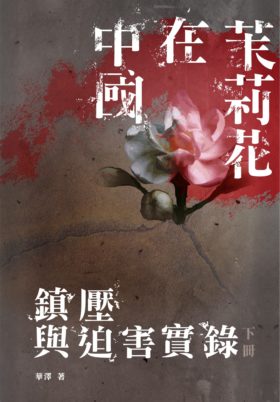
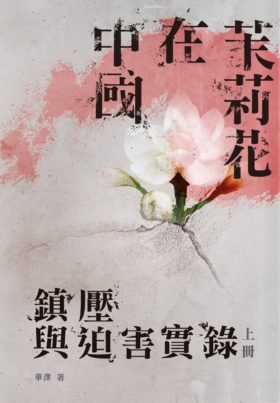
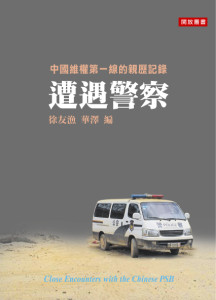
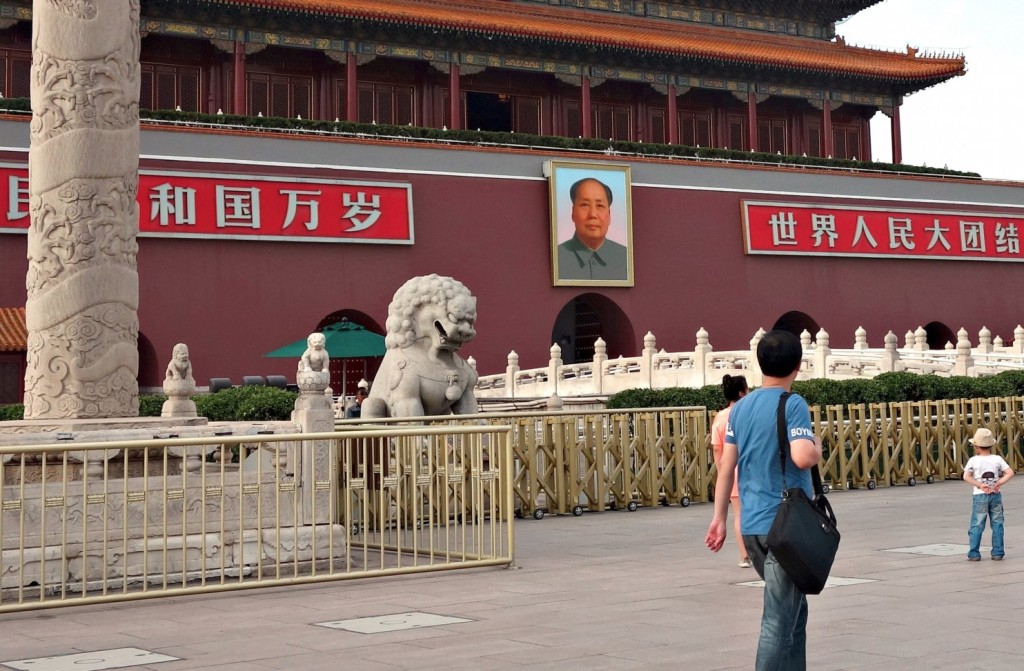

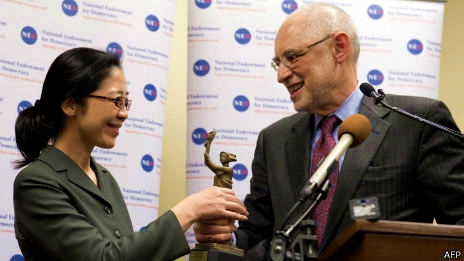
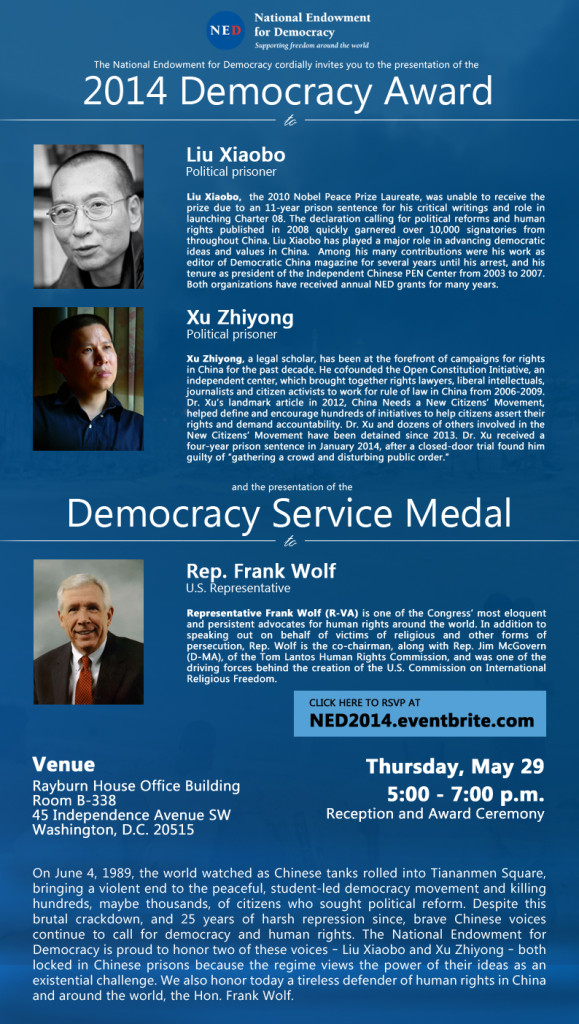



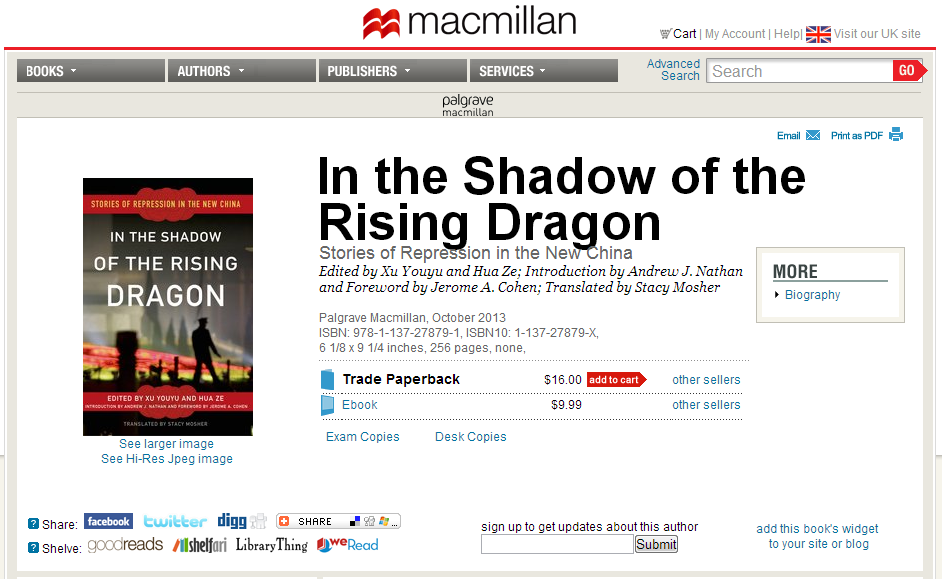
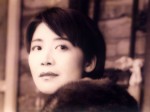
近期评论